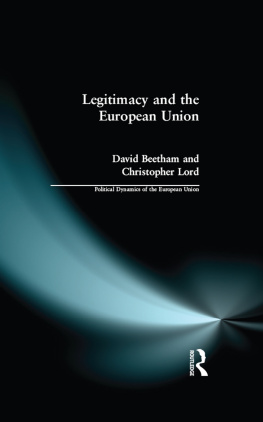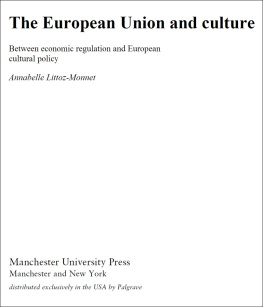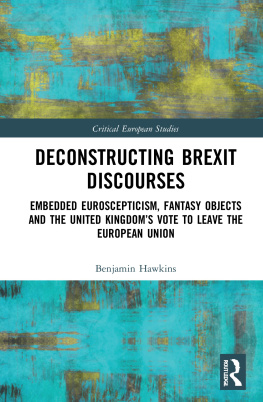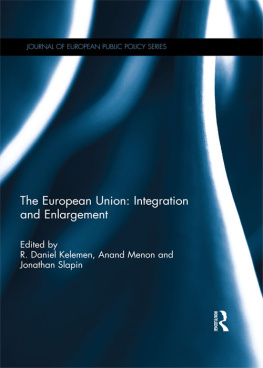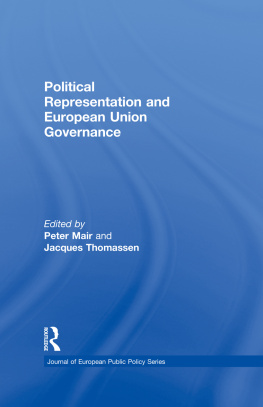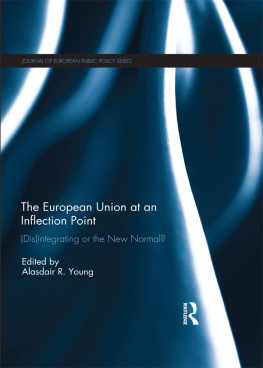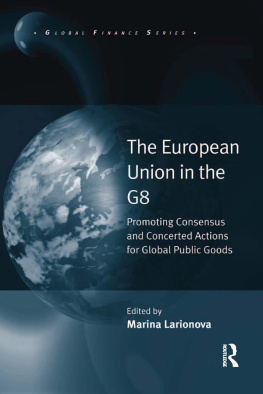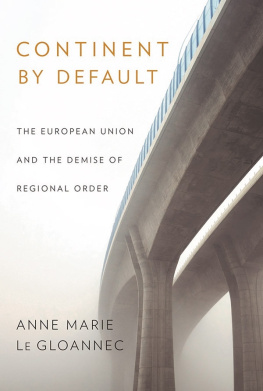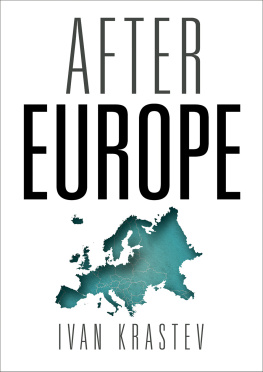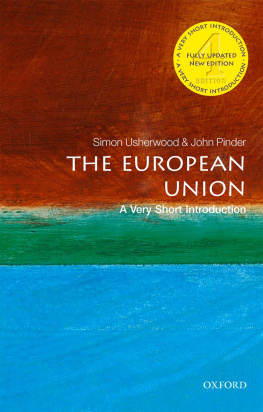First published 1999 by Addison Wesley Longman Limited
Published 2014 by Routledge
2 Park Square, Milton Park, Abingdon, Oxon OX14 4RN
52 Vanderbilt Avenue, New York, NY 10017
Routledge is an imprint of the Taylor & Francis Group, an informa business
Copyright 1999, Taylor & Francis.
The right of Peter J. Anderson and Tony Weymouth to be identified as authors of this work has been asserted by them in accordance with the Copyright, Designs and Patents Act 1988.
All rights reserved. No part of this book may be reprinted or reproduced or utilised in any form or by any electronic, mechanical, or other means, now known or hereafter invented, including photocopying and recording, or in any information storage or retrieval system, without permission in writing from the publishers.
Notices
Knowledge and best practice in this field are constantly changing. As new research and experience broaden our understanding, changes in research methods, professional practices, or medical treatment may become necessary.
Practitioners and researchers must always rely on their own experience and knowledge in evaluating and using any information, methods, compounds, or experiments described herein. In using such information or methods they should be mindful of their own safety and the safety of others, including parties for whom they have a professional responsibility.
To the fullest extent of the law, neither the Publisher nor the authors, contributors, or editors, assume any liability for any injury and/or damage to persons or property as a matter of products liability, negligence or otherwise, or from any use or operation of any methods, products, instructions, or ideas contained in the material herein.
ISBN 13: 978-0-582-31740-6 (pbk)
British Library Cataloguing-in-Publication Data
A catalogue record for this book is available from the British Library
Library of Congress Cataloging-in-Publication Data
Typeset by 43 in 10/11pt Palatino
Anderson, Peter J., 1954-
Insulting the public? : the British press and the European Union / Peter J. Anderson and Tony Weymouth.
p. cm.
Includes bibliographical references and index.
ISBN 0-582-31740-1 (pbk.)
1. Press--Great Britain. 2. European Union--Press coverage. 3. European Union--Great Britain. 4. Press and politics--Great Britain. I. Weymouth, Tony, 1938- . II. Title.
PN5124.E87A53 1999
| 072.09045--dc21 | 98-45964 |
| CIP |
Britains relationship with the European Union has rarely run smoothly and never has this turbulent liaison been more controversially depicted than in certain sectors of the British press.
In this book we have attempted an assessment of the performance of the British press, in relation to the EU, in the period immediately preceding the General Election of 1997, and during the British presidency of the Union from January to June 1998. But we do not confine our analysis to the task of assessing press performance alone. We also identify some of the possible key consequences of this performance for the interests of British citizens.
We have approached this study mainly from two disciplinary perspectives. The first has its origins in media/discourse analysis, and the second in political science. This is a powerful and fruitful alliance that has allowed us to identify some fundamental characteristics of media discourse, on the one hand, and to assess, on the other, the quality of its content by reference to the European debate that has taken place within the disciplines of political science and international studies during recent years. We have tried especially to make two complex areas of study accessible to the non-specialist reader and to demonstrate that they are indeed mutually enhancing in important ways.
Such an approach is not without problems. Discourse analysts may feel we have hardly touched the surface of what could have been said about the texts we have examined. Similarly, political scientists may also reflect that not all the European debate is included here. All true. But our objective is to offer a picture of Europe on a broad multidisciplinary front to readers from a variety of different academic and professional backgrounds, and to show how the issues have, or have not, been represented in the press. We would particularly hope that our approach will make our findings and commentary of interest to press professionals and students of both the media and European politics/international relations.
For readers who may wish to become acquainted with the arts of discourse analysis, in a media context, and the other chapters.
Among the many organisations, political and commercial, which have helped us, we are particularly grateful for the cooperation of several national newspapers, the Press Complaints Commission and the Representation of the European Commission Office in London. Our special thanks are also due to the following whose help, encouragement and advice were crucial in the preparation of the manuscript: Norman Fairclough, Aileen McLeod, Keith Jenkinson, Charlotte Thomas, Claire Wieclawska, Gordon Parsons, Saleel Nurbhai, Phillippa Sherrington, and Sally Driscoll. If we have ignored their advice, we have done so at our peril.
Important note
Late in the preparation of this book we encountered unforeseen obstacles to its completion in its intended form. This was due to the refusal by some authors, or their agents, to grant permission to reproduce certain extracts from articles written for the News International publications The Times and the Sun.
As researchersa nd writers usedt o operatingu ndert he fair dealing principle in matters of copyright, the limited quotation from articles, providing therei s full acknowledgementi,s for us the very stuff of free speecha nd opend ebatew hich we take for granted.O ur experiencei n this connection with News International indicates that this assumption is unfounded and this is cause for concern, particularly as the material we wished to quote represented the opinions of some well known journalists and public figures in the Eurosceptic camp.
Rather than cut out all mention of these articles they were after all selected for their importance, interest and relevance we have decided to indicatei n our text all instancesw herew e haveb eenp reventedf rom printing a particular extract and to give a brief account of its content and noteworthinessW. e also indicate how our readersm ay best gain access to these articles. Past copies of The Times are frequently held in libraries on CD-ROM or microfiche; past editions of the Sun may not be held but can be consulted if necessary on micro-film in the British Library. Where it is possible for readers to consult these texts we strongly recommend that they do so.


